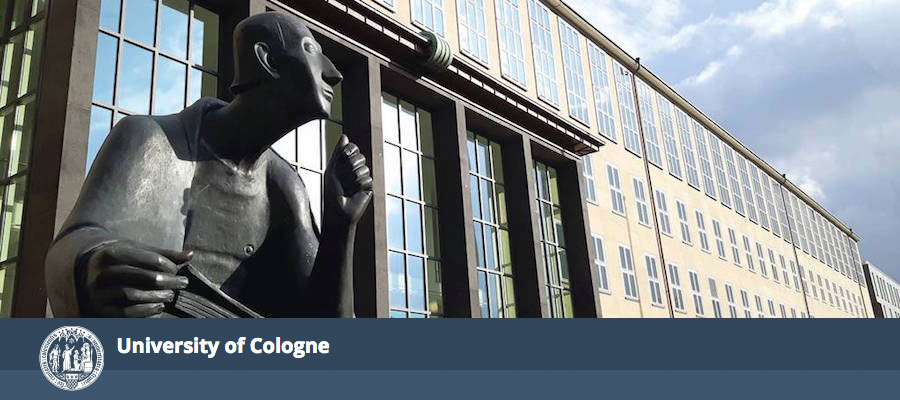Starting in April 2019, the a.r.t.e.s. Graduate School for the Humanities Cologne will award 9 Integrated Track Doctoral Scholarships.
The a.r.t.e.s. Graduate School serves the entire Faculty of Arts and Humanities and covers all qualification levels of academic training in the arts and humanities – from Master to postdoc. The structured model of doctoral studies of the a.r.t.e.s. Graduate School for the Humanities Cologne, the so-called “Integrated Track”, enables students to complete a high-quality dissertation within three years in a lively interdisciplinary research environment.
With its distinctive interdisciplinary emphasis, the a.r.t.e.s. Graduate School encourages young scholars to go beyond the boundaries of their disciplines. This dialogic, cross-disciplinary approach aims to foster an understanding of a wide range of knowledge processes in all their complexity. Seeking to bridge the disciplinary divide between the humanities and the natural sciences, a.r.t.e.s. focuses on the complex intersections between language, history, culture, mediality, anthropology, and ethics.
Candidates admitted to the structured doctoral model Integrated Track are supervised by a team of three researchers and participate in a curriculum that includes, among other things, the attendance of regular meetings with one of the interdisciplinary graduate classes.
a.r.t.e.s. addresses excellent graduates of the humanities who are still in the process of developing their doctoral dissertation projects.
The a.r.t.e.s. Doctoral Scholarship is a full scholarship that is awarded for three years starting April 1, 2019.
The Faculty of Arts and Humanities offers doctoral degrees in the listed disciplines: African Studies (Afrikanistik); Ancient History (Alte Geschichte); Anglo-American History (Anglo-Amerikanische Geschichte); Art History (Kunstgeschichte); Byzantine Studies (Byzantinistik); Catholic Theology (Katholische Theologie); Chinese Studies (Sinologie/China-Studien); Classical Archaeology or Archaeology of the Roman Provinces (Klassische Archäologie oder Archäologie der römischen Provinzen); Didactics of History (Didaktik der Geschichte); Digital Humanities; Dutch Studies (Niederlandistik); Eastern European History (Osteuropäische Geschichte); Egyptology (Ägyptologie); English Philology (Englische Philologie); Finnish Studies (Fennistik); General Linguistics (Allgemeine Sprachwissenschaft); Geography (Geographie); German Philology (Deutsche Philologie); Greek Philology (Griechische Philologie); Historical and Comparative Linguistics (Historisch-vergleichende Sprachwissenschaft); Iberian and Latin American History (Iberische und Lateinamerikanische Geschichte); Indology and Tamil Studies (Indologie und Tamilistik); Information Processing (Informationsverarbeitung); Japanese Studies (Japanologie); Jewish Studies (Judaistik); Latin Philology (Lateinische Philologie); Linguistics (Linguistik); Medieval History (Mittelalterliche Geschichte); Medieval Latin Philology (Mittellateinische Philologie); Modern and Recent History (Neuere und Neueste Geschichte); Musicology (Musikwissenschaft); North American Studies; Oriental Philology: study focus Islamic Studies or Indonesian Philology (Orientalische Philologie: Schwerpunkt Islamwissenschaft oder Indonesische Philologie); Philosophy (Philosophie); Phonetics (Phonetik); Pre- and Early History (Ur- und Frühgeschichte); Protestant Theology (Evangelische Theologie); Regional Studies China (Regionalstudien China); Regional Studies Eastern and Central Europe: study focus Russia or Poland (Regionalstudien Ost- und Mitteleuropa: Schwerpunkt Russland oder Polen); Regional Studies Latin America (Regionalstudien Lateinamerika); Romance Philology (Romanische Philologie); Scandinavian Studies (Skandinavistik); Slavonic Studies (Slavistik); Social and Cultural Anthropology (Ethnologie); Theatre and Media Studies (Theater- und Medienwissenschaft).
